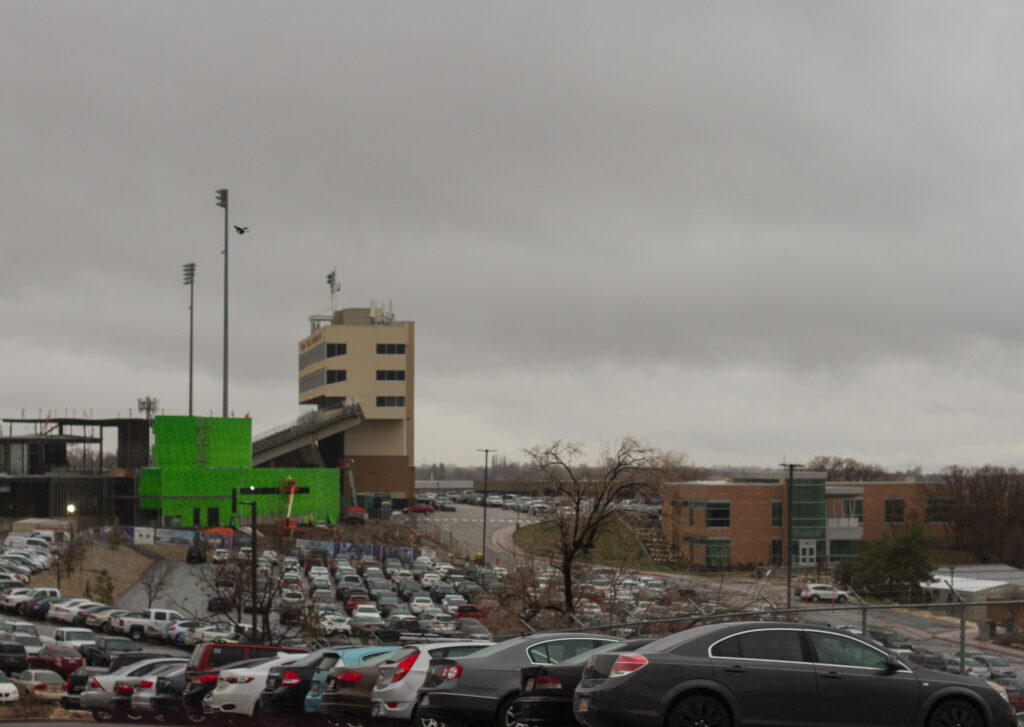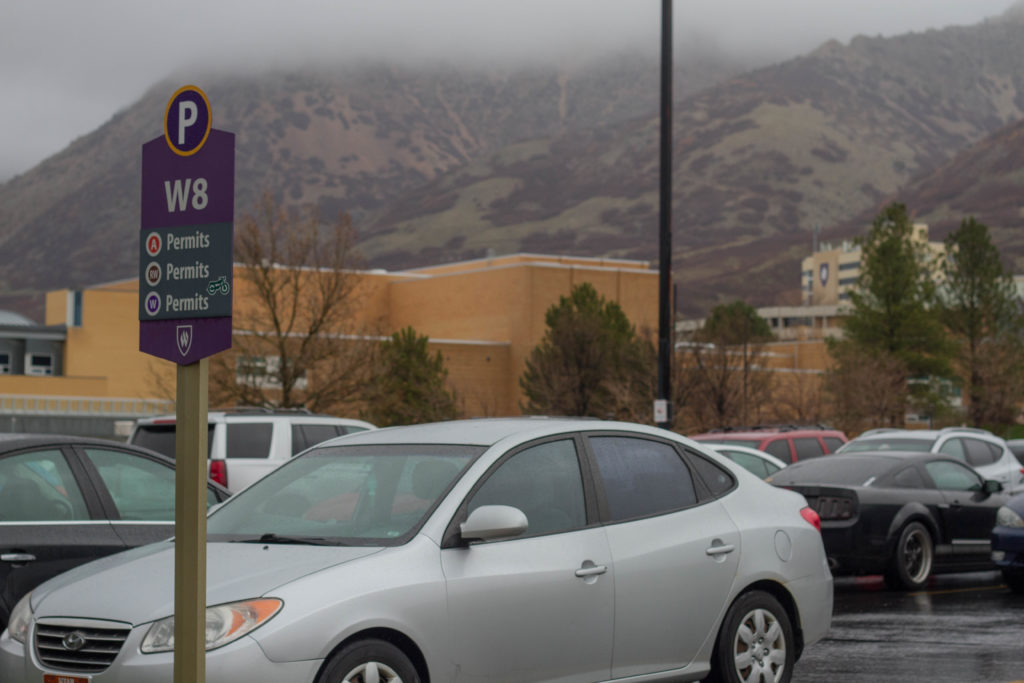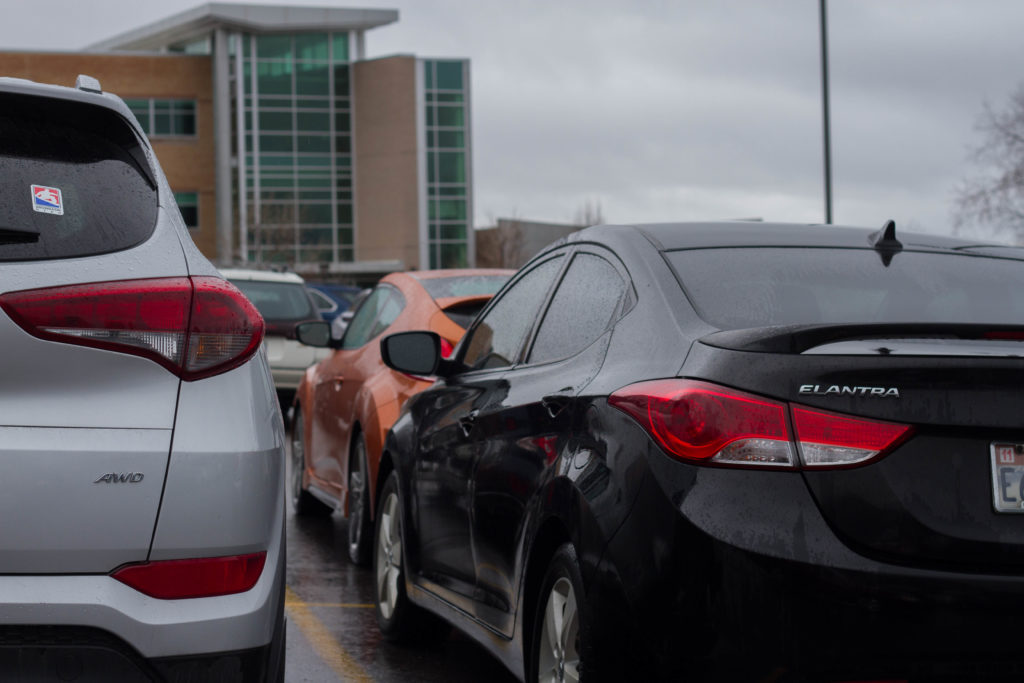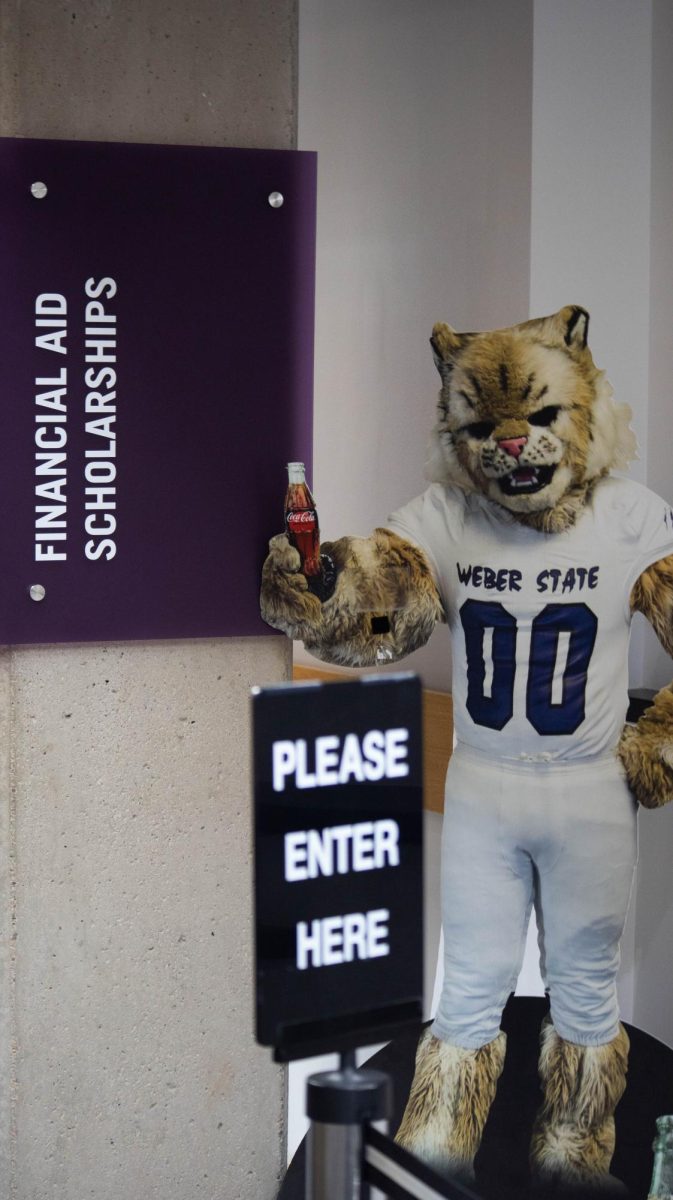
On March 29, Crystal Taylor was juggling phone calls from angry students and employees at Weber State University. It had snowed all morning, and as a result, cars were quadruple-parked in some campus lots. Taylor, the manager of Parking Services, was frazzled.
“Snow days,” Taylor said, “are a disaster.”
Parking has long been a source of contention for students at WSU. Every WSUSA candidate vows to tackle parking problems and find a solution. Bret Alexander, next year’s WSUSA president, promised to prioritize the issue during his first 100 days in office.
W lots fill up as early as 8 a.m. Some students drive to campus two hours before their first class to find a place to park.
In the fall of 2019, Weber will move to a completely new parking management system. Parking will be managed with a license plate recognition program, using cameras to scan the vehicle’s license plate.
Parking services will become a virtual system. Students will pay for permits online, and their permit will become active as soon as they’ve paid. Students will no longer need to wait in long lines at Parking Services on the first day of class to pick up their permits.
Beyond the convenience of not having a physical pass, the new system will reduce extraneous plastic waste on campus.

“We’re going green,” Taylor said. “We’re going to save tons of paper and plastic.”
One of the most common appeals was that students had forgotten to move their permits between vehicles. That issue will not longer be a concern, as students can register up to two license plates per permit.
“Because we have a lot of misuse and fraudulent use, the permit had to be displayed,” Taylor said. “With this system, the permit doesn’t have to be displayed.”
The most crucial aspect of the new system is that students enter their license plate information correctly online.
If students are renting or borrowing a different car for the day, they can enter the new license plate information at any time. Only two license plate numbers can be registered at any given time.
If your vehicle doesn’t have a front plate, you’ll need to find a front-end parking spot. Your plate will need to be visible to the travel lane so the scanner can read it.
For the first time in several years, permit prices will not increase for the fall semester. W permits will cost $79 for the year or $57 for the semester.
WSU will save money with the new system, hence the reason costs for permits can stay the same.
An unlimited amount of W passes will be sold, while A permits will be given out the same way. The senior lottery for an A pass will run the same, opening to seniors and grad students at the beginning of July. Students will have 10 days to log into the system and pick their three most preferable lots.
Ticket prices, which have held steady for five years, will increase with the new system. Ticket prices will jump from $16 to $18.
“We’re still the cheapest ticket in the state, at any university,” Taylor said.
While the new system is more convenient for faculty and students, the lack of available parking has not be addressed.
W permits are oversold and W lots are full during peak hours, from 9-11:30 a.m.
Still, Weber has more parking lots and cheaper permits than any other university in the state.
Taylor acknowledged that nearby parking isn’t always readily available, but there are still spots open. Lots are always available offsite at the Dee Events Center, and students can get UTA passes for free to travel from off-campus.

“It’s a matter of perception,” Taylor said. “If you haven’t been anywhere else, you don’t understand that it’s more a convenience problem.”
Each year, a swell of students anxious for more convenient parking options call for a parking garage. Utah Valley, Utah State, and the University of Utah have all invested in parking garages.
In return, UVU students pay $750 for annual garage permits. University of Utah students pay almost $600. The $79 W pass shines in comparison.
Because there are usually hundreds of empty spots, Taylor said Weber doesn’t plan to build a parking garage any time soon.
In three weeks, Weber’s campus will empty out for the summer. In the fall, more than 24,000 students will come to campus, trying to squeeze into 7,000 parking spots.
Next winter, it will inevitably snow, and thousands of students will invent paint lines as they skid through the parking lots. Some problems are in Parking Services’ control — ticket prices, permit types and the appeal process — but one thing they cannot control, as evidenced by the disaster on March 29, is the weather.



















